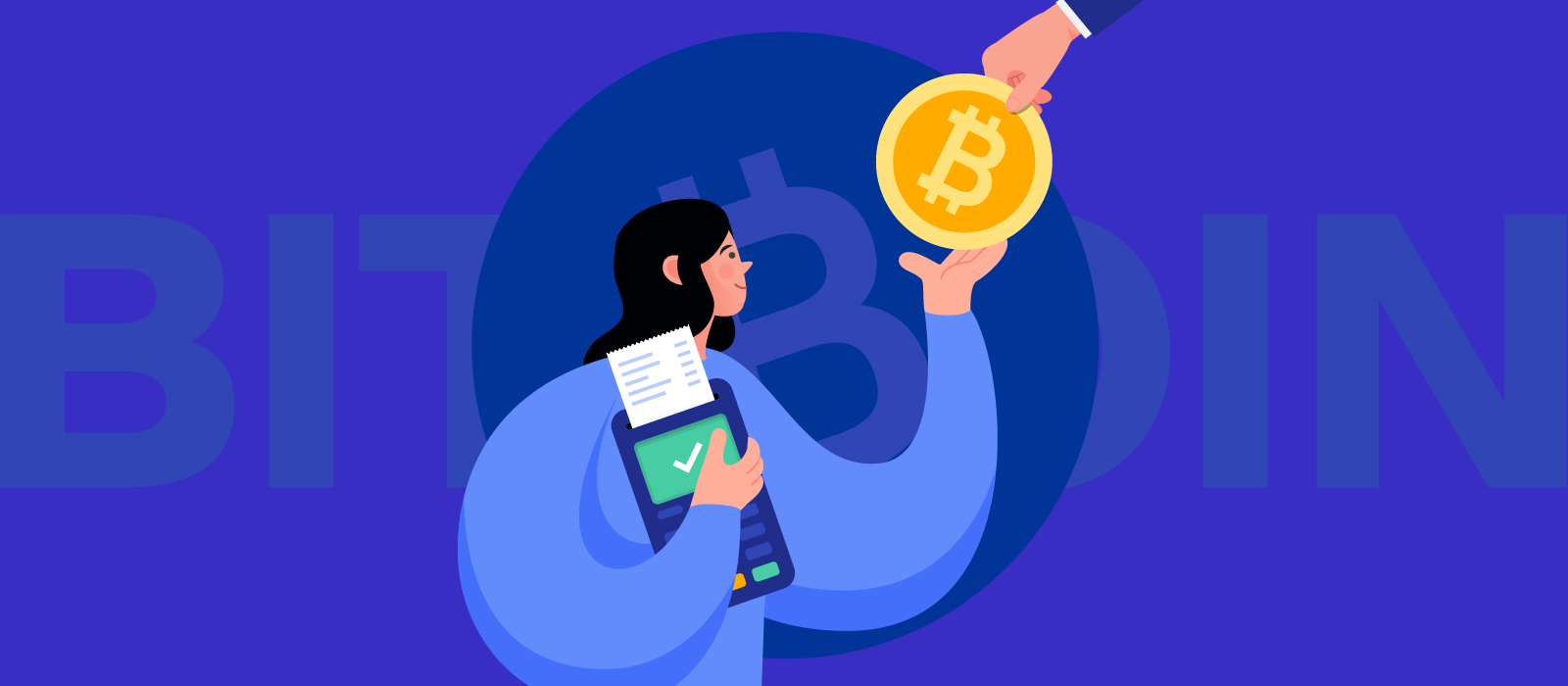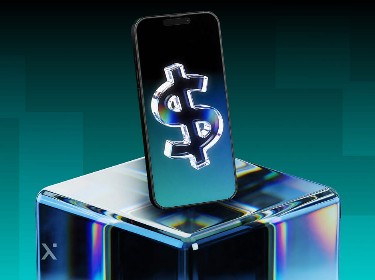The cryptocurrency world has grown by leaps and bounds in recent years, with Bitcoin (BTC) leading the way. Many companies, unable to ignore Bitcoin’s rising popularity and technological advances, have begun to embrace crypto payments. But how does it all work?
Over the years, humankind has created and used all manner of payment systems, from food barter and precious metals to metal coins and paper money. These days, though, performing a monetary transaction is as simple as swiping a card! While most transactions are carried out through government-regulated systems, the world of finance and investment has witnessed the ascent of a new payment method — cryptocurrency.
Cryptocurrencies are virtual digital assets that leverage a peer-to-peer system called the blockchain. Blockchain consulting services and development can help apply cryptography to create new units and protect each transaction. Operating on a decentralized network, cryptocurrencies have proved to be a great alternative to traditional currencies.
Why consider using crypto?
Many tech-savvy people hear about crypto and wonder what the hype is about. We’ll try to address this question by listing a few advantages of using it.
Ownership
Crypto is the only electronic cash system that allows you to hold your account independently. Due to the decentralized nature of the currency, neither a bank nor the government has any control over it — so you are the sole, independent owner of your crypto.
Accessibility
There are 4.66 billion active internet users as of January 2021. However, not all of them can access banking, debit cards, or credit cards. Individuals who are left out of the traditional financial system can therefore use the cryptocurrency market instead for their transactions. Anyone with access to a smartphone or computer can send and receive Bitcoins seamlessly.
Instant settlement
Cryptocurrency uses the blockchain to make quick payments and money transfers. With a smart device and an internet connection, you can become your own bank and get a quick settlement on any transaction. While credit card transactions take up to 48 hours to settle, a Bitcoin transaction can be completed in approximately 10 minutes.
Fraud-proof
When cryptocurrency is generated, all confirmed transactions are saved in a public ledger. Crypto’s blockchain technology uses encryption and smart contract development services, making it fraud-free and virtually unhackable. The coin owners’ identities are encrypted to maintain privacy without losing track of who has made the transaction. Owing to the immutable nature of the blockchain solutions, Bitcoin records are maintained accurately and cannot be tampered with.
In which countries is Bitcoin accepted as payment?
![]()
Due to Bitcoin’s decentralized structure, many users have asked questions such as “where is Bitcoin accepted?” and “is Bitcoin legal?” Here we’ll look at what countries accept Bitcoin and how they treat this currency in terms of regulations.
El Salvador
El Salvador is the only country where Bitcoin is considered to be legal tender. In June 2021, the El Salvador Congress approved President Nayib Bukele’s proposal to formally adopt Bitcoin as a mode of payment.
The United States (U.S.)
The U.S. has taken a positive stance toward Bitcoin, though several government agencies have been working to reduce or prevent the use of Bitcoin for illegal transactions. For example, the U.S. Department of Treasury has defined Bitcoin as a money services business (MSB) rather than a currency, placing it under the Bank Secrecy Act. According to the act, exchanges and payment processors must adhere to reporting, registration, record keeping, and other similar responsibilities. The Internal Revenue Service (IRS) has also categorized Bitcoin as property for taxation purposes.
Canada
The Canada Revenue Agency (CRA) considers Bitcoin a commodity, making Bitcoin transactions similar to barter transactions. Therefore, the income generated through Bitcoin transactions is treated as business income. Taxation is contingent on the nature of business — whether it is buying and selling, or is confined to investments.
Canada views Bitcoin exchanges as money service businesses, bringing them under the purview of the anti-money laundering (AML) laws. Bitcoin exchanges must be registered with the Financial Transactions and Reports Analysis Centre of Canada (FINTRAC), abide by their compliance plans, keep certain records, and report suspicious transactions. Some major Canadian banks have prohibited the use of their debit and credit cards for Bitcoin transactions.
Australia
Australia considers Bitcoin as neither money nor foreign currency. The Australian Taxation Office (ATO) has ruled that it is an asset for capital gains tax purposes.
The European Union
According to the European Court of Justice, buying and selling digital currencies is a supply of services. This exempts crypto from value-added tax (VAT) in all European Union (EU) member states. Additionally, some EU countries have taken their own stance onBitcoin.
- In Finland, Bitcoin is considered a commodity, and not a currency.
- In Belgium, Bitcoin is exempt from VAT.
- In Cyprus, Bitcoin is neither regulated nor controlled.
- In Bulgaria, Bitcoin has been brought under the existing tax laws.
- In Germany, Bitcoin is regarded as legal but taxed differently based on whether the authorities are dealing with users, miners, enterprises, or exchanges.
Which countries banned Bitcoin?
Bitcoin is a decentralized currency, which means that it is not created or regulated by any government. That explains why some see it as a potential threat to the existing financial system. Many countries are also hesitant to accept Bitcoin because of its volatility and the possibility that it could be used for money laundering or drug trafficking.
While some countries have managed to work around these difficulties, others have decided to ban Bitcoin outright. Here are some of the countries that have said a firm “no” to cryptocurrency.
China
Bitcoin and other cryptocurrencies are to all intents and purposes banned in China. The Chinese government has imposed restrictions on miners to prevent the mining of new coins. Financial institutions like banks and payment gateways are also prohibited from transacting in Bitcoin due to its extreme fluctuations in value and also to the authorities’ efforts to prevent money laundering.
Russia
In Russia, it is illegal to use Bitcoin as payment for goods or services. Dmitry Peskov, the official representative of Vladimir Putin, said that Russia has no reason to recognize Bitcoin as legal tender. He argued that putting Bitcoin and other cryptocurrencies on a par with traditional money instruments would only be detrimental to Russia’s financial and economic system, stating “Clearly, Russia is not ready for such moves.”
However, Bitcoin is not regulated or banned completely — Bitcoin can be mined and stored for the purpose of investment.
Vietnam
The state bank and government of Vietnam maintain that Bitcoin is not a legal payment method. However, it is not regulated as a mode of investment: suspicion about the immaterial nature of cryptocurrencies remains an obstacle for state-authorized banks that lack control over the crypto ecosystem.
Columbia, Bolivia, and Ecuador
Columbia does not permit the use or investment of Bitcoin. The central bank of Bolivia has prohibited Bitcoin’s use, along with that of other cryptocurrencies. Ecuador, too, has banned the use of Bitcoin after a majority vote in the national assembly. The ban of crypto in these countries can largely be attributed to government-level concerns about the risks of manipulation and speculation that could have significant impacts on national economies.
In addition, the high volatility of cryptocurrencies and the lack of knowledge about them have prompted reactive legislative policies in a number of other countries.
The rise of Bitcoin and cryptocurrency
![]()
Ten years ago, cryptocurrencies were largely unknown to the general public. Bitcoin’s first big price increase occurred in 2010 — the value of a single Bitcoin jumped from a fraction of a penny to $0.08. At present, one Bitcoin is worth approximately $41,358. This steady and substantial increase in Bitcoin prices has encouraged more businesses to accept it as a payment method.
When Bitcoin first started gaining popularity, many countries and businesses voiced their concerns about its legitimacy, value, and potential for growth. Some even banned Bitcoin completely. Contrary to their expectations, Bitcoin has risen to the top of the crypto market and is now considered to be one of the most viable investments. Today, only the countries and companies that didn’t ban crypto are reaping its benefits.
Major companies that accept Bitcoin
For a customer, the value of any currency depends on where it can be used. If you own Bitcoins and are looking for a way to spend them, here are some of the major international companies that accept this crypto as a form of payment.
Overstock
Overstock is a leading American online retailer that sells big-ticket items at economical prices by overstocking. It has partnered with Coinbase to enable Bitcoin payments for its online orders. In January 2014, Overstock became the first major retailer to accept Bitcoin as payment. The company generated over $1 billion in revenue that year.
Microsoft
Microsoft started accepting Bitcoin in 2014 as payment for apps, games, and other digital content for Xbox and Windows Phone. At one point the company stopped accepting cryptocurrency, but it was quick to resume its service. It also accepts Bitcoin for topping up Microsoft accounts.
Wikipedia
Wikipedia, the world’s largest open-source encyclopedia, is operated by Wikimedia. Wikimedia accepts donations in Bitcoin, and the transactions are processed through BitPay.
Paypal
PayPal began accepting Bitcoin in September 2014. PayPal’s move was meant to draw businesses to its platform, rather than attract consumers. The appeal was that Bitcoin’s transaction fee was much lower than the 2%-3% fee charged for credit card transactions. The most obvious benefit for businesses was a widening of the customer base to include those who may not own a credit card but do have Bitcoins to spend.
Etsy
While Etsy cannot accept Bitcoin across the site, each seller can accept crypto by selecting the “other payment method” option at checkout. When buyers click that option, they can message the seller to say that Bitcoin is their preferred payment method. The seller then provides a Bitcoin address to execute the transaction.
The Etsy Community forum has a dedicated Bitcoin page with tutorials explaining how sellers can advertise their acceptance of Bitcoin.
Starbucks
![]()
Starbucks joined the Bitcoin revolution in March 2020. Though the company does not accept Bitcoin as an over-the-counter payment for frappuccinos, customers can add Bitcoins — along with frequent-flyer miles and gift card balances — to the Starbucks app and pay via their phones. This upgrade was supported by the Bakkt third-party digital wallet app, which converts Bitcoin to dollars, making Bitcoin payments instantaneous.
Learn more about ProCoffee, a convenient mobile application for coffee lovers and baristas
The Home Depot
The Home Depot uses the Winklevoss/Flexa system to accept Bitcoin through its existing digital scanners. Flexa converts Bitcoin to dollars instantaneously, making crypto transactions seamless for both the authorities and the retailer. The buyer can spend their Bitcoins, while The Home Depot gets the dollars in exchange.
Rakuten
The Japanese cashback and shopping site Rakuten started accepting Bitcoin payments in 2015. They began their global Bitcoin rollout with Rakuten.com in the U.S. and later expanded the new service to its equivalents in Austria and Germany. Rakuten integrated the Bitnet payment processing platform into its marketplaces to accept Bitcoin payments. The company has also developed a Rakuten wallet that supports altcoins like Bitcoin Cash and Ethereum. Users can now use their crypto assets to recharge their Rakuten Cash balance.
Newegg
Newegg, the online electronics giant, accepts Bitcoin as payment. Unlike other platforms, which require you to convert crypto to cash through a third-party service, Newegg lets you make Bitcoin payments directly. Shoppers buying through a computer can conveniently choose the “Pay With Bitcoin” option and proceed to fill in the shipping information as usual. For shoppers making purchases from their phones, Newegg sends a QR code that can be scanned to make payments. Newegg also sells starter-level crypto mining kits for anyone interested in mining Bitcoins independently.
Twitch
Twitch, the popular streaming video platform, accepts Bitcoin, Bitcoin Cash, Ether, and lesser-used coins like BUSD, GUSD, PAX, XRP, and USDC. Twitch adopted crypto as a payment option in 2014. In 2019, it quietly removed its Bitcoin service, only to bring it back in June 2020.
Tesla
In February 2021, Tesla purchased a historic $1.5 billion in Bitcoin and started accepting it as payment for automobiles. However, the company went back on its decision three months later due to environmental concerns about the high energy consumption at mining centers. Elon Musk’s tweet in June explained Tesla’s future course of action with respect to Bitcoin: “When there’s confirmation of reasonable (~50%) clean energy usage by miners, with a positive future trend, Tesla will resume allowing Bitcoin transactions.”
Bitcoin and its usage in various industries
Bitcoin, Ethereum, Litecoin, Ripple, and Bitcoin Cash are the most popular cryptocurrencies, with a total market share of 63.88%. As Bitcoin has increased in popularity, more companies have started accepting it. Here are some well-known companies across various industry verticals that have joined the crypto revolution.
Jewelry & Watches
The jewelry sector is no stranger to Bitcoin payments. These are some of the companies that are happy to receive payments in the form of cryptocurrency:
- Etsy
- Kobelli
- Ancora1919
- Fancy
- Saving Pearls
- Domoshop
- Cryptomatic
Services & Intermediaries
Mobile carriers and television and internet service providers have jumped aboard the Bitcoin train. These are among the providers that offer an option to pay with Bitcoins:
- AT&T
- DISH
- Ynotek
- Bitrefill
- Teahouse Transport
- Purse.io
- eGifter
- Gyft
An example worth highlighting is AT&T, which in 2019 became the first mobile carrier to accept Bitcoin. After logging in online or through the app, customers select BitPay as a payment method. DISH, a satellite television and internet service provider, started accepting Bitcoin back in 2014, competing directly with AT&T’s satellite service, DirecTV.
Food & Beverages
You can now use your hard-mined crypto money to bring food to the table. Below are some of the food and beverages businesses that accept Bitcoin payments:
- Domino’s Pizza
- Subway
- Burger King
- Whole Foods
- Crypto Coffee
- Wholesale Roots
- Koyah
- Whisky.de
- Lieferando
- The Pembury Tavern
- Undead Coffee
Key example: Lightning Pizza accepts Bitcoins as a payment method when ordering Domino’s Pizza online.
Banks & Payment services
Cryptocurrencies are perceived as a threat to banks because they are faster, safer, and cheaper. Nevertheless, not all banks and payment services are opposed to Bitcoin merchants. We list them below:
- Fidor Bank
- Paypal
- Goldman Sachs
- Worldcore
- Bankera
- Royal Bank of Canada
- Intuit
- Vaultoro
- BitcoinCommodities
- Bylls
- Denarium
Key example: The German Fidor Bank allows customers to buy and sell Bitcoin.
A number of banks do not permit BTC transactions, either for legal reasons or because it would be tedious to implement and track crypto transactions. Due to the decentralized, unregulated nature of crypto, banks prefer to avoid the prospect of having to resolve Bitcoin-related criminal activities.
Online shops
Online shopping is more convenient and affordable for consumers, which is why it’s the norm today. Here are some popular online stores that accept Bitcoin as payment for goods:
- Shopify
- Overstock
- Newegg
- Rakuten
- Bitplaza
- Wellbots
- Survival Camping Store
- Webhallen
- Something Geeky
- Sugartrends
- CryptoShopper
- Bit Shopping
- Mubiz
- Minku
- Benny’s Boardroom
- Gipsybee
Key example: Shopify is a popular eCommerce platform that helps entrepreneurs start an online store without any prior knowledge of coding, logistics, or inventory management. Sellers on Shopify can accept crypto payments through Coinbase Commerce, BitPay, or CoinPayments.net. After enabling a relevant payment method, the seller can accept Bitcoin, Litecoin, Ethereum, and over 300 other digital currencies.
Check out this eCommerce solution that PixelPlex managed to launch in just 8 weeks
Travel
![]()
At present, there are quite a few travel companies that accept Bitcoin. You can use cryptocurrencies to book flight tickets, train tickets, hotels, and experiences with the following travel agencies:
- CheapAir
- Bitcoin.Travel
- Cryptocribs
- Travala
- More Stamps Global
- aBitSky
- AirTreks
- TravelbyBit
- CheapBizClass
- Greitai
- PrivateFly
- Destinia
Key example: CheapAir is a California-based online travel agency that accepts cryptocurrency, having processed more than $5 million worth of crypto payments since 2013. Currently, CheapAir accepts Bitcoin, Bitcoin Cash, Dash, and Litecoin for booking both domestic and international flights.
Automotive manufacturers & Services
While you cannot download a car, it’s definitely possible to buy a car using Bitcoin. Cryptocurrencies are accepted as a payment method with these car companies:
- BMW
- Lamborghini Newport Beach
- Post Oak Motor Cars
- Classic Recreations
- Remotes and Keys
- AGU
- Spokester
Key example: The Stephen James Group, an authorized BMW and MINI automotive company, is one of the select few car companies that accept Bitcoin, posting on Twitter: “Stephen James is now accepting Bitcoin for the purchase of your new BMW! Contact us today to find out more about how you can use Bitcoin to walk away with a brand new vehicle.”
See how this solution enables efficient data management and communication between dealers, car owners, and BMW employees
Charity
You can spend cryptocurrency on almost anything, even charity. Here are some non-profit organizations and charities that accept cryptocurrencies:
- The Water Project
- Red Cross
- Save the Children
- Internet Archive
- United Way
- BitGive Foundation
- Code to Inspire
Key example: The Water Project has a noble raison d’être — to provide access to clean and safe water across sub-Saharan Africa. It also accepts Bitcoin Cash, Bitcoin Core, Ethereum, and Litecoin. Donors can use the app to see how the donated funds are being used.
Movie industry & Theaters
Theatres and cinemas around the globe have started accepting cryptocurrency as payment for tickets. You can watch your favorite plays and movies by purchasing a ticket from the following cinemas and theatres:
- Cinemulti
- AMC Theaters
- Major Cineplex
- Lionsgate Films
- London Theatre Direct
Key example: Cinemulti is the first cinema in Brazil to accept Bitcoin as payment through the Bancryp App. However, it isn’t the first cinema in the world to accept Bitcoin. In 2018, the Major Cineplex Group in Thailand started allowing Bitcoin as a payment method across their sites.
Clothing & Handbags
Fashion stores always seem to know what’s “in”. With the popularity of cryptocurrencies surging, many retailers have started accepting Bitcoin as a payment method. Here are some of them:
- Excellion
- Lanieri
- BitcoinShirt
- Hipptee
- WearsMyLiberty
- YYBazaar
- Shirtwascash
- Queen Bee of Beverly Hills
Key example: Excellion claims to be the leading brand for fashion-conscious cryptocurrency enthusiasts. The only way to buy products from Excellion is with Bitcoins — making them a true Bitcoin store.
Online media & Marketing
Given that the digital world has always been a step ahead when it comes to embracing technology, it is no surprise that Bitcoins are accepted as payment for online media. The following are some online media and marketing companies that accept cryptocurrencies:
- Wikipedia
- iTunes
- Longplayer
- Bittunes
- BitStickers
- Synergetic Press
- Tradebit
- Dark Ambient Radio
- EMWiRES Bitcoin Shop
Key example: The Wikimedia Foundation is the American nonprofit and charitable organization best known for hosting Wikipedia, the world’s largest open-source encyclopedia. You can donate via BitPay to support their cause.
Software & Hardware manufacturers
Many major tech companies have started accepting Bitcoins as payment. Here are some of the major software and hardware stores that welcome it:
- Microsoft
- LibreOffice
- Ledger
- Trezor
- Archos
- Uzi Shop
- Eyeboot
- GoDark
- Purism
- Avnet
- Revealer
- Break Store
- Caseking
Key example: Microsoft customers who own Bitcoin can use it to add money to their Microsoft accounts. The redeemed Bitcoins can be used to buy movies, games and apps on the Windows and Xbox stores. However, it is not possible to use Bitcoins to make purchases from the Microsoft online store.
Gaming & Gambling
![]()
Avid gamers can use cryptocurrencies to buy video and computer games. Here is a list of the gaming companies that accept Bitcoin:
- Big Fish Games
- Xbox
- PlayStation Network
- G2A
- Betcoin
- Zynga
- Joltfun
- Play-Asia
- Sportsbet
- 1xBit
- FortuneJack
- CoinMall
Key example: Big Fish Games accepts Bitcoin payments via Coinbase. However, Bitcoin won’t be saved as a payment method in your billing profile, nor will Bitcoin transactions be eligible for refunds. You can only use Bitcoin to make non-recurring purchases, and it cannot be used to pay for a club membership. What’s more, Bitcoin payments on Big Fish Games are only available for purchases made in US dollars.
Hosting, cloud services, VPN
Since VPN makes connections secure and anonymous, it is no surprise that cryptocurrency holders want to use it when buying stuff with Bitcoin. A VPN can keep Bitcoin transactions private. Here are some hosting, cloud and VPN services that can be used to buy cryptocurrencies:
- NordVPN
- AirVPN
- ExpressVPN
- Namecheap
- Hosterbox
- CyberGhost
- PeerName
- Hostinger
- Hostwinds
- Directnic
- Unihost
- CINFU
- Lightbox Technologies
Key Example: NordVPN is one of the largest VPN service providers, with 5,265 servers in 60 countries. You can buy NordVPN using Bitcoin (BTC), Ethereum (ETH), Ripple (XRP), Litecoin (LTC), Dash (DASH), Monero (XMR), Zcash (ZEC), Tron (TRX), and BitTorrent (BTT).
Nonprofits
Donating money to charities often incurs sizable fees. Moreover, some people prefer to keep their donations anonymous. Donating money using Bitcoins offers a way to take care of both these concerns. Here are some not-for-profit organizations that accept Bitcoin:
- Wikimedia Foundation: the nonprofit organization dedicated to the growth, development, and distribution of free, multilingual educational content
- The Giving Block: a platform that makes it easy for donors and non-profit organizations to offer and accept cryptocurrency donations.
Education
Paying for college is something that worries most students. However, those who have learned about Bitcoin and have successfully mined or traded BTC can now pay their college fee without much hassle at the following institutions:
- The University of Nicosia, a private school in Cyprus.
- Curtin University, a large university in Australia with courses covering business, engineering, architecture, information technology, and more.
- The King’s College, a New York-based Christian liberal arts college.
- The European School of Management and Technology, a German university hosting many international students.
Key example: In 2013, the University of Nicosia became the first university to offer a Master’s in Blockchain and Digital Currency program, giving students the option of paying the tuition fees using Bitcoin.
Beauty and health
For those looking to spend crypto on beauty and health, here are some websites that accept Bitcoin as payment for their products and services:
- Overstock.com
- Purse.io
- Bitrefill
- Coincards
While some companies accept Bitcoins as direct payment for products and services, other sites like Bitrefill and Coincards offer gift cards (for Ulta and Sephora respectively).
Cell phone carriers
Most users who own crypto also have cell phones. Many have been looking for carriers that accept crypto payments for their services. Here are some popular cell phone carriers that accept Bitcoin:
- AT&T
- Virgin Mobile
- T-Mobile Poland
Key example: AT&T was the first major US & UK cellular network provider to accept Bitcoin as payment for their cell phone services. Soon after, Virgin Mobile followed suit.
Sports
The world of sports has likewise begun to give the thumbs up to crypto as payment for tickets and merchandise. Here are a few sports clubs and companies that accept Bitcoin payments:
- Sport Lisboa e Benfica
- Dallas Mavericks
- Miami Dolphins
- Nitrogen Sports
Key example: Sport Lisboa e Benfica, commonly known as Benfica, is an extremely popular soccer team based in Lisbon, Portugal. It accepts Bitcoin for game tickets and merchandise.
Take a look at FootballNet — a blockchain-based fan loyalty platform for football club owners
What are the other payment options?
![]()
There are many different options for using cryptocurrency to buy everyday items. Businesses are starting to accept Bitcoin and other cryptocurrencies, and software and third-party companies are helping accelerate their use. With these additional payment choices, you can spend Bitcoin and other cryptocurrencies at numerous places across the globe.
bitpay
Bitpay allows you to use crypto at any merchant that accepts Mastercard. The company also provides a debit card that can be used in conjunction with a crypto wallet. Through Bitpay, users can instantly convert crypto into cash that gets added to the card’s balance. This card acts as a reloadable prepaid debit card that allows customers to use crypto for purchasing items.
Flexa
Flexa is a payments platform that integrates seamlessly into the user’s existing hardware. Flexa enables businesses to accept up to 25 different coins, tokens, and currencies.
Bakkt
Bakkt provides Bitcoin futures and options contracts for institutions. It also offers a crypto wallet app for individuals. The Bakkt wallet allows its users to make payments and purchase gift cards with crypto at a number of stores.
CoinPayments
CoinPayments operates a global payment gateway for individuals to buy crypto and convert it in order to make payments and to purchase gift cards. Its wallet can store over 2,000 cryptocurrencies. CoinPayments also has business accounts, with similar features to Square or PayPal.
Cryptobuyer
Cryptobuyer allows businesses to accept Bitcoin through its reliable payment portal. The company also offers accounts for individuals looking to secure a crypto wallet or to purchase gift cards using their crypto.
BTCPay
BTCPay allows businesses to accept Bitcoin. However, BTCPay is a little different from other operators. It is an open-source API solution, allowing companies to set up crypto payments without supplying personal information. Instead of going through a company, a business can connect the API directly to their eCommerce store. Similarly, an individual can integrate BTCPay with their blog to start accepting Bitcoin. BTCPay transactions do not have third-party companies taking fees or collecting data.
Conclusion
It’s almost impossible to find an industry that Bitcoin hasn’t “touched” yet. While industries such as eCommerce, online media and marketing, software, charity, and gaming have quickly adapted to today’s crypto reality, others — banking, education, and jewelry — are more cautious about cryptocurrencies. This is quite understandable since these industries are generally more conservative and take time to test and experiment with innovations.
We also see that Western governments are more willing to welcome the novelty of crypto payments than Asian countries. Anyway, Bitcoin has been around for over 10 years and, like other cryptocurrencies, doesn’t seem to stop its invasion of the traditional financial world. There will be even more companies accepting crypto payments and more platforms offering to exchange fiat for crypto and vice versa.
If you are looking to venture into the blockchain and crypto space, our crypto exchange development services are here to help you. We build all types of crypto exchanges and advise on them as well. Contact us and get your project started right away!




